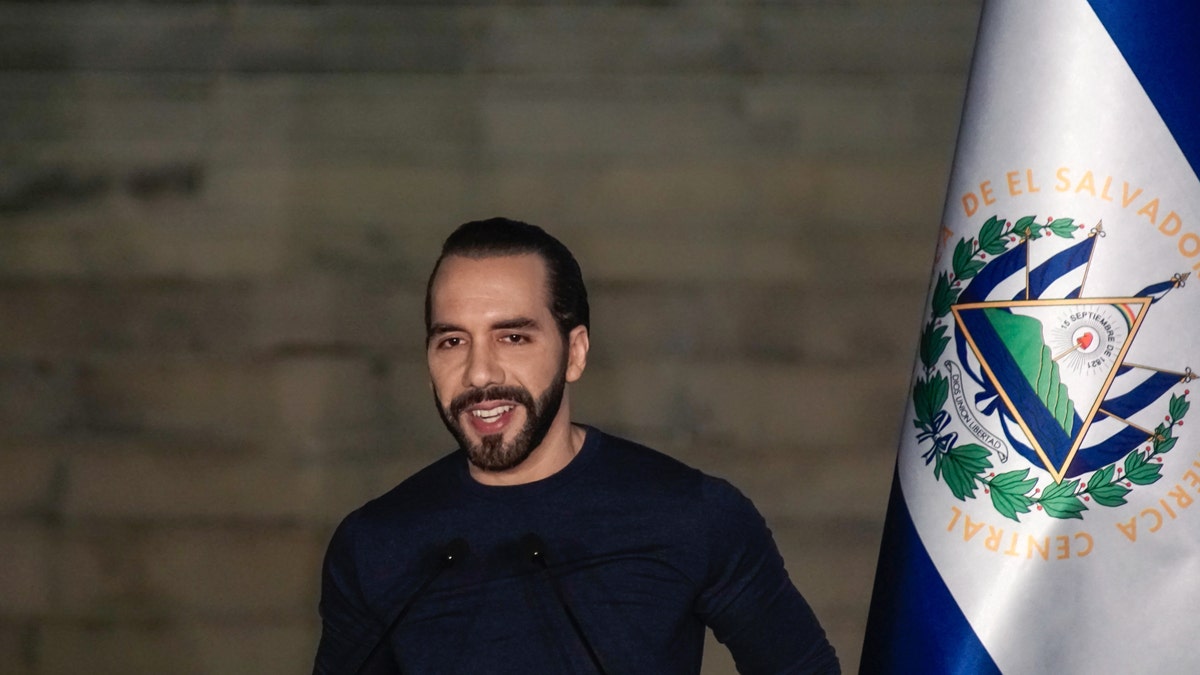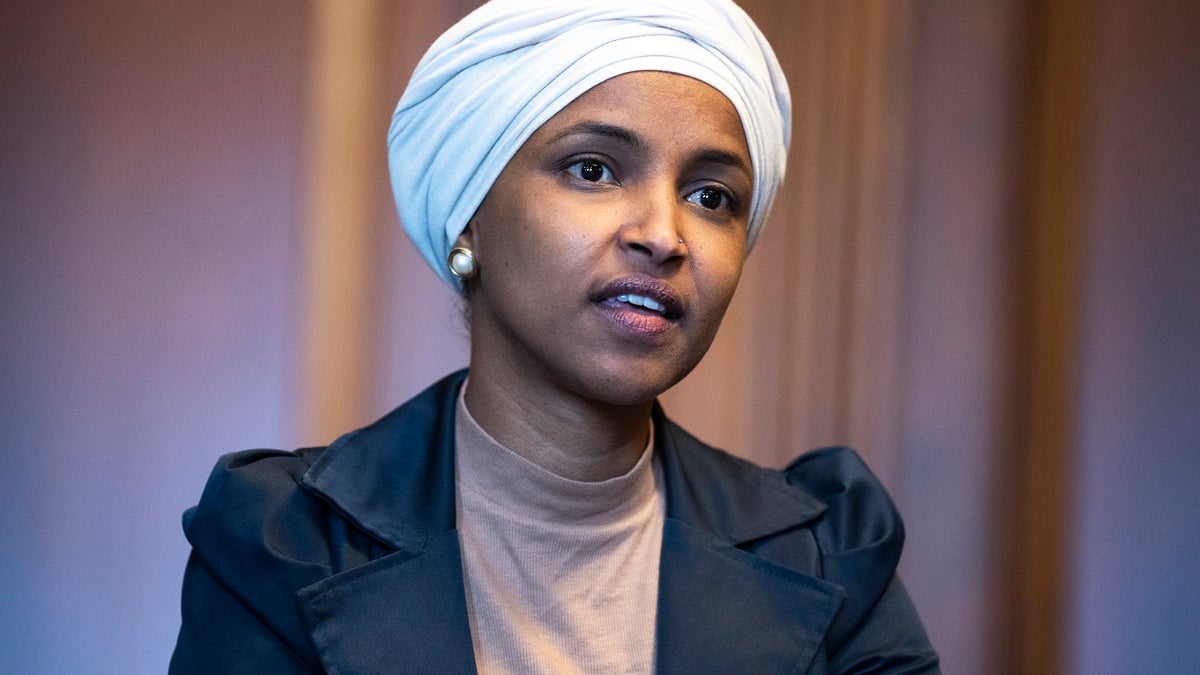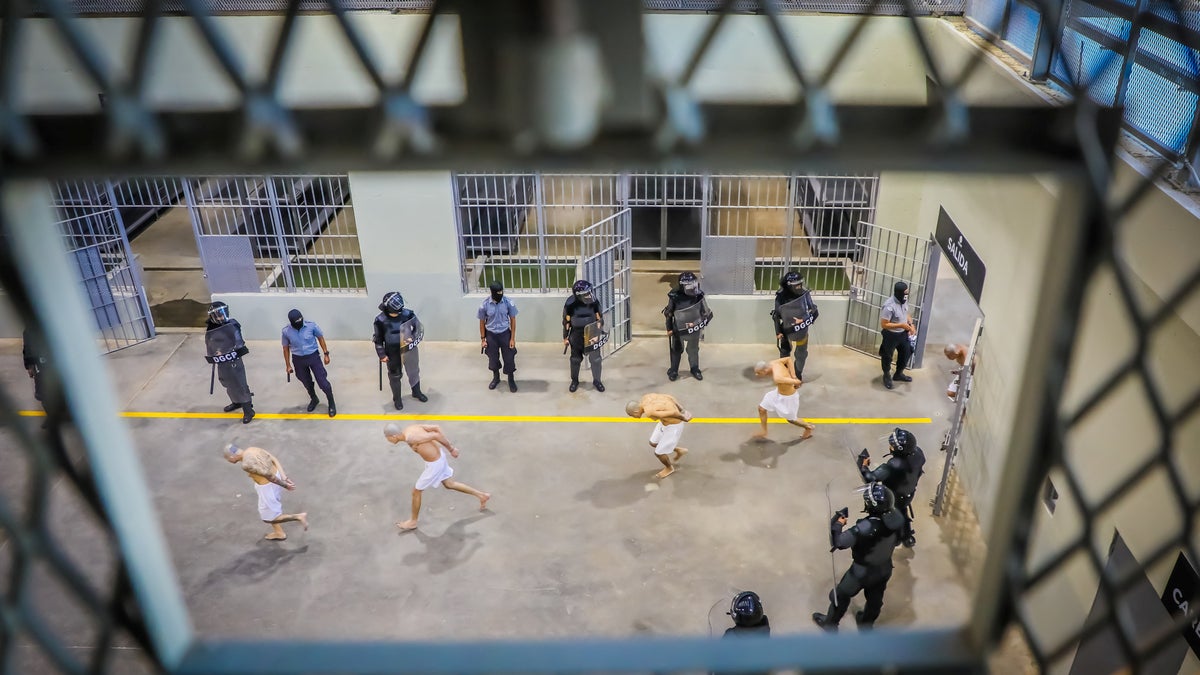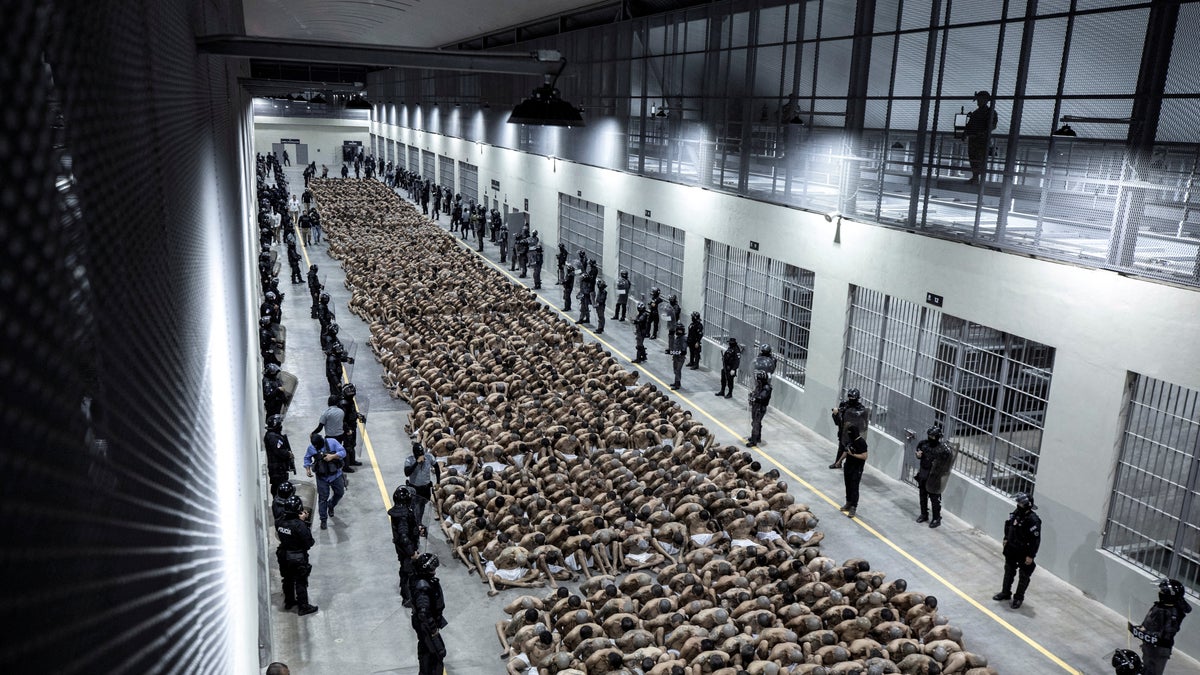El Salvador moves 2,000 more inmates to new 'mega prison'
Inmates sit on the floor of the Terrorism Confinement Center after police and soldiers force them to run into the facility during the night after arriving on buses. (CREDIT: El Salvador government TV via Reuters)
El Salvador voters stand poised to re-elect their current president and self-styled "world’s coolest dictator" Nayib Bukele in a landslide victory after he rehabilitated his country’s crime-ridden reputation.
"The opposition will be able to achieve its true and only plan, to free the gang members and use them to return to power," Bukele warned in a video that quickly spread across social media and news outlets in El Salvador.
Bukele’s controversial tenure as leader of the Central American country looks set to continue, thanks to a revamp of the constitutional courts in which he replaced judges with loyalists who ruled that he could run for a second term despite a constitutional ban on reelections.
Rep. Ilhan Omar, D-Minn., called into question the U.S. relationship with El Salvador and urged the U.S. State Department to review its relationship with the Central American country, alleging that Bukele presented "threats to democracy."
EL SALVADOR'S BUKELE, AN ANTI-GANG HARDLINER, TAKES REELECTION BID ABROAD
"The Salvadoran people deserve free and fair elections without fear of repression," Omar wrote on social media platform X.
A community note on her post noted that Bukele won the 2019 election with a 54% majority and that his crackdown on gang violence has helped cement his immense popularity with a 91% approval rating among voters.
Bukele shot back at Omar, joking that he felt "honored" to "receive your attacks," saying he would be very worried if she had backed him in the election.
Bukele came to power in 2019 and clashed with the Legislative Assembly over policies, including severe restrictions during the COVID-19 pandemic. His party took control of the national congress in 2021 and started instituting sweeping changes to other branches of government and instituting new laws that allowed him to effectively go to war with the gangs in his country.
WHO IS GUATEMALA'S NEW PRESIDENT AND CAN HE DELIVER ON PROMISED CHANGE?
Once known as the "murder capital" of the world, El Salvador underwent significant reforms that allowed the government to sweep up alleged gang members by the hundreds and shove them into a rapidly established super prison.

President of El Salvador Nayib Bukele speaks during the inauguration of a new Vijosa Laboratories plant on November 20, 2023, in La Libertad, El Salvador. (Alex Peña/Getty Images)
The prison, built in just months during 2022, can hold up to 40,000 people and has thousands of military personnel guarding it. Bukele made sure to share plenty of video and pictures of the prison and its first few thousands of occupants.
The measures, which ultimately swept up many potentially innocent men, led to a drop in the murder and crime rates over the following year. Salvadorian Justice and Security Minister Gustavo Villatoro claimed that the country recorded 154 murders in 2023, marking a 70% drop from the previous year.

Rep. Ilhan Omar, D-Minn., is seen in the U.S. Capitol's Rayburn Room during a group photo with the Congressional Black Caucus, on Wednesday, April 6, 2022. (Tom Williams/CQ-Roll Call, Inc via Getty Images)
That would account for a rate of 2.4 per every 100,000 people, which would potentially rank as the lowest in the Americas, apart from Canada, according to Reuters.
During an interview with Fox News Digital in May 2023, Bukele’s vice president and running mate Felix Ulloa claimed his country would "face the problem" of gang violence and urged the United States to invest in the country so that it could continue to crack down on criminals.

Prison agents observe gang members as they are processed at their arrival after 2000 gang members were transferred to the Terrorism Confinement Center, according to El Salvador's President Nayib Bukele, in Tecoluca, El Salvador, in this handout distributed to Reuters on February 24, 2023. (Secretaria de Prensa de la Presidencia/Handout via Reuters.)
Ulloa argued that if El Salvador and other countries could similarly deal with their crime crises, it would help alleviate the migrant crisis on the U.S. southern border, as many of those who flee to the north do so to escape their crime-ridden homeland.
El Salvador’s success has boosted Bukele’s popularity so much that other countries, such as Honduras and the Dominican Republic, have looked to replicate the model, which has raised concerns from civil rights advocates.

Gang members wait to be taken to their cell after 2000 gang members were transferred to the Terrorism Confinement Center, according to El Salvador's President Nayib Bukele, in Tecoluca, El Salvador, in this handout distributed to Reuters on March 15, 2023. (Secretaria de Prensa de la Presidencia/Handout via Reuters)
Ulloa admitted to The Associated Press this week that the government "made mistakes" in detaining thousands of innocent people as part of their regular sweeps, which often profile young men under the fear of gang involvement.
CLICK HERE TO GET THE FOX NEWS APP
Ulloa insisted that El Salvador "is not a police state" but rather "a state that provides security." Bukele continues to insist that if he loses the election, it would "put at risk" the country’s "war with the gangs."
Critics also point to other troubling developments in the legislature, such as Bukele’s efforts to slash the number of municipalities, which could help ensure his victory and party superiority in local and congressional elections in March.
The Associated Press and Reuters contributed to this report.








































